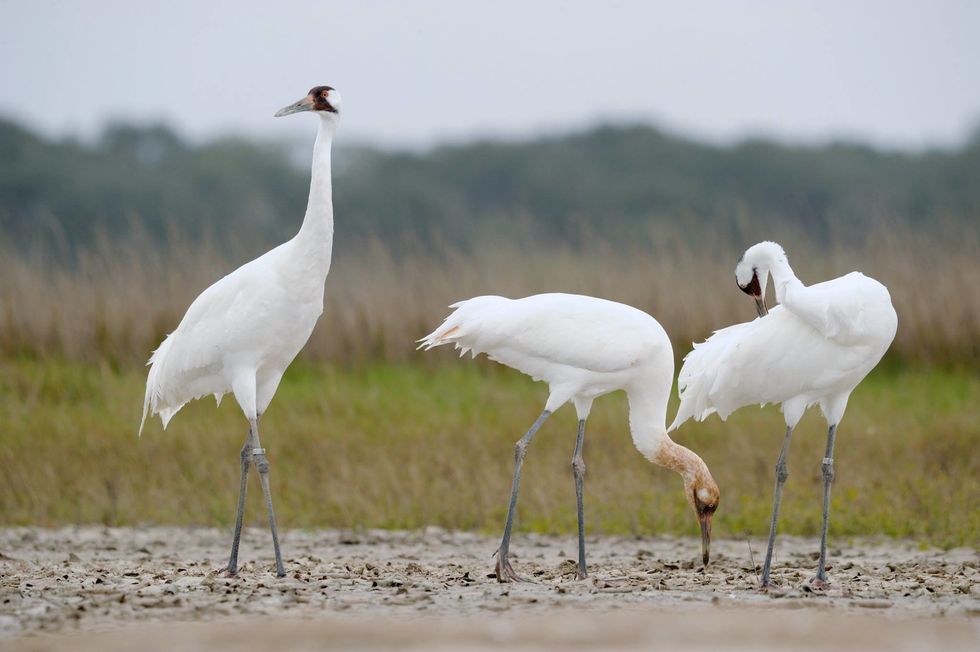With hurricane Florence rapidly approaching a consideration of how the hurricane may effect numerous plant and animal species is extremely important. With severe rains, winds, and flooding, habitat destruction can occur, resulting in a population collapse in many essential species. Since ecosystems are so interwoven and connected one population decrease can lead to detrimental effects on other species in the ecosystem.
1. Severe loss of habitat.
Perhaps the most obvious effect of hurricanes is the destruction they can have on the habitats of all species. The homes of people are often extremely damaged or destroyed. The high winds, rain, and flooding can cause trees to come down, both taking away the tree as a source of habitat and causing the fallen trees to crush and destroy habitats found below on the ground. This severe weather is also damaging to the delicate life systems found on the seashore and in sand dunes.
2. Winds push saltwater closer and on to the shores.

No one wants to see this delightful gentleman overwhelmed by an influx of salty water.
GiphyThe massive winds of hurricanes cause huge amounts of ocean water to surge onto the shore. These gargantuan surges of ocean water can travel to as much as 30 feet above the normal high tide. Most of the land-dwelling critters living near or at the edge of the water will not survive this shock. Creatures like crabs, grasses, insects, and minnows are not accustomed to such high salt levels and will die from the overabundance of both salt and water.
3. High winds can blow migrating birds off course.
With hurricanes, there is always an aggressive onslaught of high wind. These destructive winds do not only destroy the homes and buildings of humans, but they also work to blow migratory seabirds off of their treks to their new homes for the season. Many of the birds become weakened and injured, and a lot of them do not survive. The migratory locations the birds head to for the year become altered without as many of the birds making it as usual.
4. Huge waves caused by the hurricanes can eradicate large populations of sea creatures.
When hurricane Andrew struck Louisiana in 1992 over 9 million fish were found offshore dead from these violent waves. With the destruction of so many fish caused by these super storms comes an alteration in the marine ecosystems found underneath the waves. Wherever these fish may have fallen in terms of the food web, such a decrease in them would have resulted in a subsequent decrease of the populations of their predators and an influx of the populations of their prey.
5. The strong winds will work well to disperse the seeds of some plants.
Although hurricanes are holistically seen as devastatingly negative, some species actually can derive benefit from hurricanes. Orchids benefit from hurricanes in that their seeds are dispersed to a far wider range than usual from the high-speed winds.
6. Scavenging species will have an increase in food.
Scavenger species like vultures and raccoons are extremely adept at surviving in damaging situations such as hurricanes or tornados because they will eat decaying animal and plant matter. They do well after hurricanes since so many other species die, leaving them with an abundance of food. However, this is not necessarily positive, because although they are doing well, many other unique and endangered species will not be doing so well. With fewer types of species left in the world, there will be a lower overall species biodiversity and less genetic material left for evolution.
7. Flooding can cause freshwater lakes and rivers to overflow.
The heavy rainfall of hurricanes can often cause flooding. This flooding can result in species and habitats being washed out of freshwater lakes and rivers, resulting in numerous species deaths. Habitats can also be altered in the lakes and rivers because the rainwater can carry in sediments and pollutants, changing the makeup and consistency of the water.
8. Coral reefs can be severely harmed or destroyed.

The beautiful and diverse species contained in coral reefs.
GiphyThe strong waves and winds coming from hurricanes can wipe out coral reefs by physically destroying them, but corals are also affected less conspicuously by the floods of rain. These rains can carry pollutants and acid that can bleach corals or prevent them from growing. This is significant because corals take years to regrow, and they harbor lots of very important species diversity.
No matter what happens in the coming days and weeks with hurricane Florence, species are likely to be harmed. It is important for people after the storm to not only treat each other with kindness and sympathy but to also treat any affected species and habitats the same way. It is important to realize how these species are going to be impacted so that people can work to help them recover and flourish after the storm.

















